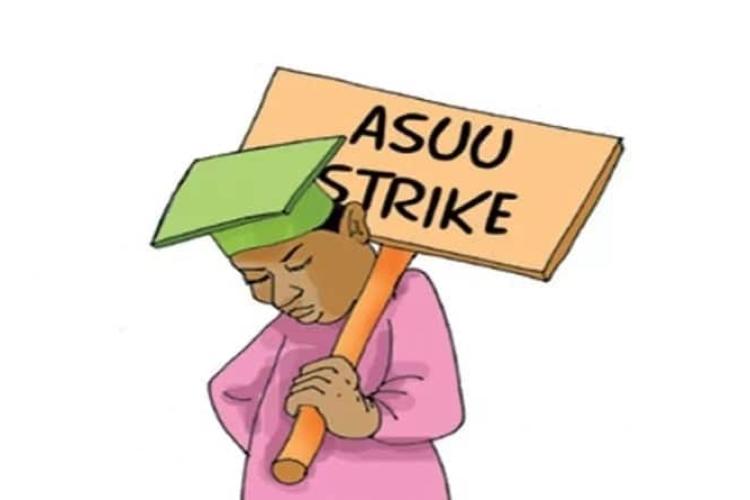The House of Representatives has mandated Speaker Abbas to intervene between the FG and ASUU face-off

The House of Representatives on Tuesday called on the Federal Government and the Academic Staff Union of Universities (ASUU) to return to the negotiating table to avert another round of industrial action that could cripple Nigeria’s tertiary education system.
It resolved to mandate its leadership, led by Speaker Rep. Tajudeen Abbas, to immediately intervene and mediate between ASUU and the Federal Government in order to achieve a lasting solution to the impasse.
This followed the adoption of an urgent motion of national importance sponsored by Rep. Whingan Sesi Oluwaseun (APC, Lagos State), on the need for immediate intervention in the face of the union’s warning strike.
Moving the motion, Rep. Oluwaseun expressed deep concern over the unresolved issues between ASUU and the Federal Government, which include the implementation of existing agreements on revitalisation funding, academic allowances, salary structure, and university autonomy.
“Although ASUU has described the strike as a warning, such industrial actions have historically escalated into prolonged shutdowns that disrupt academic calendars, derail research, and deepen the frustration of students, parents, and lecturers alike,” the lawmaker warned.
He stressed that Nigeria’s university system remains central to national development, innovation, and global competitiveness, noting that any disruption in its operations could have far-reaching consequences.
“Any disruption in the system weakens our economic competitiveness, scientific advancement, and youth productivity,” he said.
Oluwaseun further drew attention to Section 18 of the 1999 Constitution (as amended), which recognises education as a fundamental driver of social and technological progress, emphasising that both the Federal Government and the university unions have a shared responsibility to safeguard the sector’s continuity and quality.
“Repeated strikes in the tertiary sector have led to student dropouts, brain drain, and loss of public confidence, thereby threatening national stability and the realisation of Nigeria’s long-term development goals,” he added.
The lawmaker therefore urged renewed dialogue between both parties, anchored on mutual respect, transparency, and good faith, while proposing that the legislature serve as a neutral facilitator in the process.
The House also appealed to both sides to exercise restraint, embrace constructive dialogue, and prioritise the interests of students and national development above all other considerations.
“This is not the time for another academic shutdown,” Rep. Oluwaseun emphasized. “Our students deserve stability, and our universities must be protected as engines of national growth.”
Background
The Academic Staff Union of Universities (ASUU) in Nigeria on Sunday October 13 2025 declared a comprehensive two-week strike warning. The strike was called over unresolved demands including the non-conclusion of the renegotiated 2009 FGN-ASUU Agreement, non-payment of withheld salaries for three and a half months, outstanding salary arrears, promotion arrears, and issues related to cooperative contribution deductions.
The strike has disrupted ongoing academic activities and examinations in many public universities nationwide.
Meanwhile, in a joint statement, the Minister of Education, Mr. Tunji Alausa, and the Minister of State for Education, Prof. Suwaiba Sa’id Ahmad, insisted that the government had addressed all of ASUU’s major demands under the Renewed Hope administration of President Bola Ahmed Tinubu.
The ministers stated that the government had made a comprehensive offer covering working conditions, institutional governance, and staff welfare, including the introduction of a new Teaching Allowance to motivate lecturers
“However, ASUU has not officially responded to this offer and appears determined to proceed with the strike.” the statement stated.
The government has reiterated the enforcement of the “no work, no pay” policy on striking lecturers and has called for continued constructive engagement to resolve the issues.

